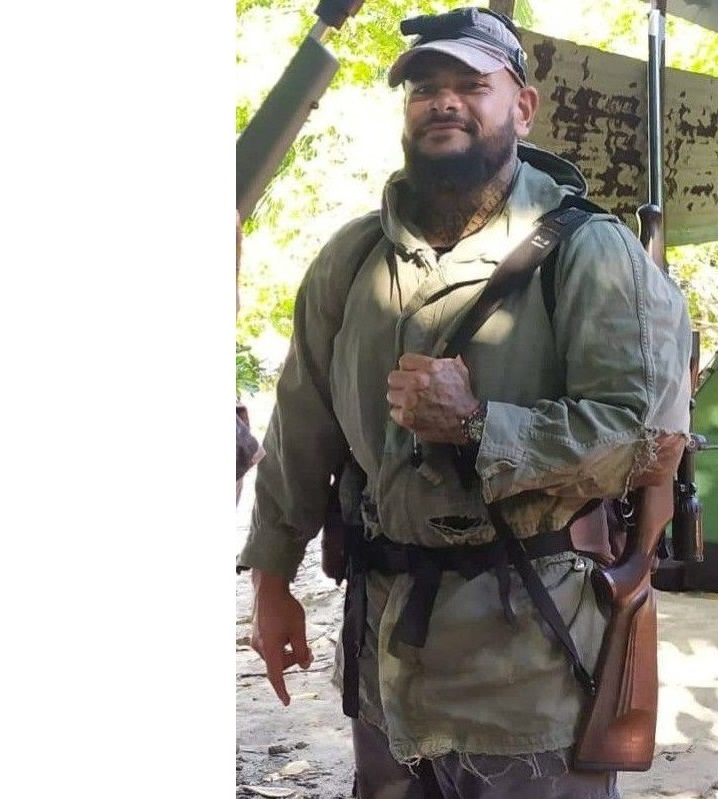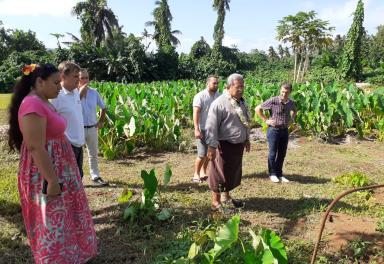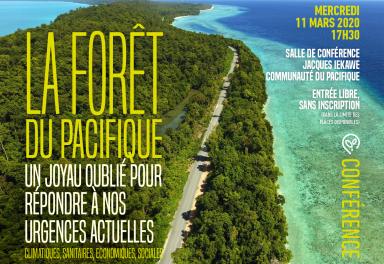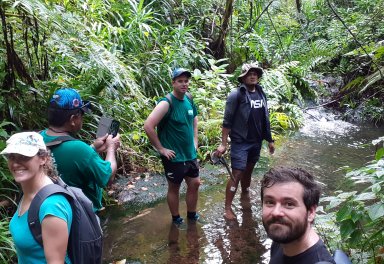Wild pig trapping operations in Nuku’atea
The Territorial Environmental Service (STE), supported by Island Conservation, continues its operations to remove wild pigs from Nuku’atea islet in Wallis.
The Territorial Environmental Service (STE) of Wallis and Futuna continues its efforts to preserve the biodiversity of Nuku’atea islet by removing populations of wild pigs, thanks to close collaboration with Island Conservation and the Federation of Wildlife and Hunting of New Caledonia (FFCNC). These crucial trapping and hunting operations, authorized by customary authorities since May 2022, have already led to the removal of 93 pigs, marking a significant step in the protection of local flora and fauna.
The detrimental impact of wild pigs on the biodiversity of Nuku’atea is undeniable, as they attack ancient forests and feed on protected species such as turtle eggs. This proliferation also threatens the food security of the population by devouring tubers and coconut crabs. Faced with this major environmental challenge, the efforts deployed have already resulted in the removal of more than 150 pigs across all the islets of Wallis, contributing to protecting the fragile ecological balance of the region.
A partnership is being developed with the Federation of Wildlife and Hunting of New Caledonia (FFCNC) to finalize the removal (requiring intervention by trained dogs and their handlers) and also enable population control on the main islands.

Meet Antony Talbone, technical officer for invasive species at the territorial service of Wallis:
"I joined the PROTEGE team of the Territorial Environmental Service in September 2020. My initial missions involved the removal of invasive plant species such as devil's vine in Nukufotu and American agave at Mount Lulu. Alongside the preparation for rat eradication operations on the islets, we conducted a survey to estimate the pig population on Faioa islet and tested some techniques before setting up traps. We crafted our own cage traps, which are still in use to this day. With net traps, we removed about sixty pigs from Faioa! We then started trapping at Nuku’atea, which is larger and has more rugged terrain. We were trained to identify areas with the help of camera traps, bait the traps, activate and monitor them, which is done daily. The trapped pigs are either culled or captured depending on their size and risks, all in accordance with the agreement reached with the landowners, with whom we maintain ongoing communication. So far, 153 pigs have been removed from Nuku’atea and Faioa islets.
When trapping becomes less effective, we carry out hunting operations, including stalking and night hunting. Through PROTEGE, our skills have been enhanced through the partnership with Island Conservation, for example, by using larger caliber weapons.
These skills will continue to be strengthened through an exchange with the Federation of Wildlife and Hunting of New Caledonia (FFCNC), which will be beneficial in terms of safety-related skills, weapon maintenance, carcass management, as well as innovative regulation techniques for both day and night. These techniques can then be adapted by our team, which has expertise in the local context (terrain, population presence, land issues).
I am proud to have participated through PROTEGE in the first project to regulate wild pig populations on the Territory's islets – and we hope to continue these actions on the main islands."







